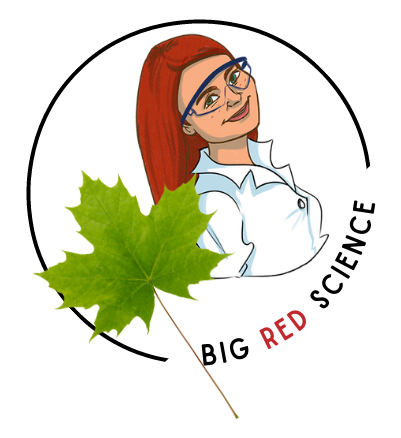
Have you ever come up against this argument from other teachers?
It seems that sometimes educators confuse presenting content with actually making sure learning is happening.
Hear me out.
If we truly want kids to understand big ideas in science, then learning needs to include having students recall what they already know.
This means teachers need to review, review, review!
**Want to just skip to a list of 21 ways that you can make content stick in students’ brains? You can grab my freebie here!**
Read on for 4 reasons WHY you should be doing daily review in your science class.
It helps our students – both immediately AND in terms of building their own study skills – and *spoiler alert* it’s EASY, can be very low-prep, and makes your teaching life really enjoyable!
- Review improves retention
Think about it…when you hear something once, do you remember it weeks or months later? Probably not. What if you heard it every few days? Much more likely that you could recall the general idea.
2. Review can build confidence
Regular review is low stakes. It’s just different ways of checking in each day to see what kids remember from previous lessons (or the current lesson!).
You have the power to offer a wide selection of questions, including ones questions that you know students will know.
You’ll see confidence budding and blooming when kids remember things they didn’t even know they remembered. And then their brains will become even more receptive to learning, because they know they can do it. It’s a beautiful cycle!
3. Review can build relationships
When you review every day, students gain confidence. They start remembering stuff. AND, not immediately knowing stuff becomes normalized.
This fosters an environment when kids understand that you’re all working together to learn. You’re all working together to explore science.
So, students becoming comfortable with making mistakes and this helps them become comfortable with you as their teacher.
4. Review can be fun!
Review doesn’t have to be full of games all the time, but you should bring in games sometimes!
Students LOVE games, and a happy, relaxed brain is going to be receptive to learning.
In addition to keeping brains happy, games can feel like a break, they always result in laughter, they fuel some friendly competition, and they are a nice way to bring different groups of students together.
Are you convinced yet that lots of reviewing is worth your time? Awesome!
Now, where to start?
Here are TWO things that you should consider when making review a priority:
- Review should be ongoing
Don’t wait to review until before a test. Review constantly. I mean it! Review every day.
Every. Day.
It can be 5 or 10 minutes, and it can (and should!) take on many different forms.
Regularly revisiting topics ultimately leads to more brain connections, and that means science concepts sticking in students’ brains without them even realizing it.
Psst…If you’d like to see a list of 21 ways to review in Science class, check out my freebie here.
There are SO many ways to work review into the day. Try a mix of…
- Using review to start the class.
- Reviewing as you’re working through a lesson.
- Taking the last 10 minutes of class to review.
- Spending a full day doing review!
One of my favourite quick, simple, low-prep ways to review in science:

Want 20 more strategies? Check out my freebie here!
2. Review should spiral content
Spiralling content is a fancy way of saying that stuff students learned a while ago should reappear every once in a while. For example, if you’re in a unit on cellular respiration, you can still spend 5 minutes one class asking some recall questions about those carbohydrates, lipids, and proteins you worked on 2 months ago.
Start reviewing, teacher friends! You’ll be amazed at how it transforms the classroom experience for you and your students!
If you need a jumpstart about exactly how to work review into your daily class, grab this freebie!
Scientifically yours,
Mo
P.S.
Psst…are you a NEW-ish TEACHER interested in some classroom management tips to ensure you’ll have a stress-free classroom next year? Click here!

Are you an ONTARIO SCIENCE TEACHER?
Me too! Click here if you’d like some specific science content that’s aligned to the Ontario curriculum, Growing Success, and all that as, of, for jazz that we know and love! (I promise you won’t be overloaded with emails!)
Interested in a deep dive into a few of my favourite review ideas? Check out:
Student-directed learning and high engagement? Yes, please!
My favourite way to review vocabulary in high school science



